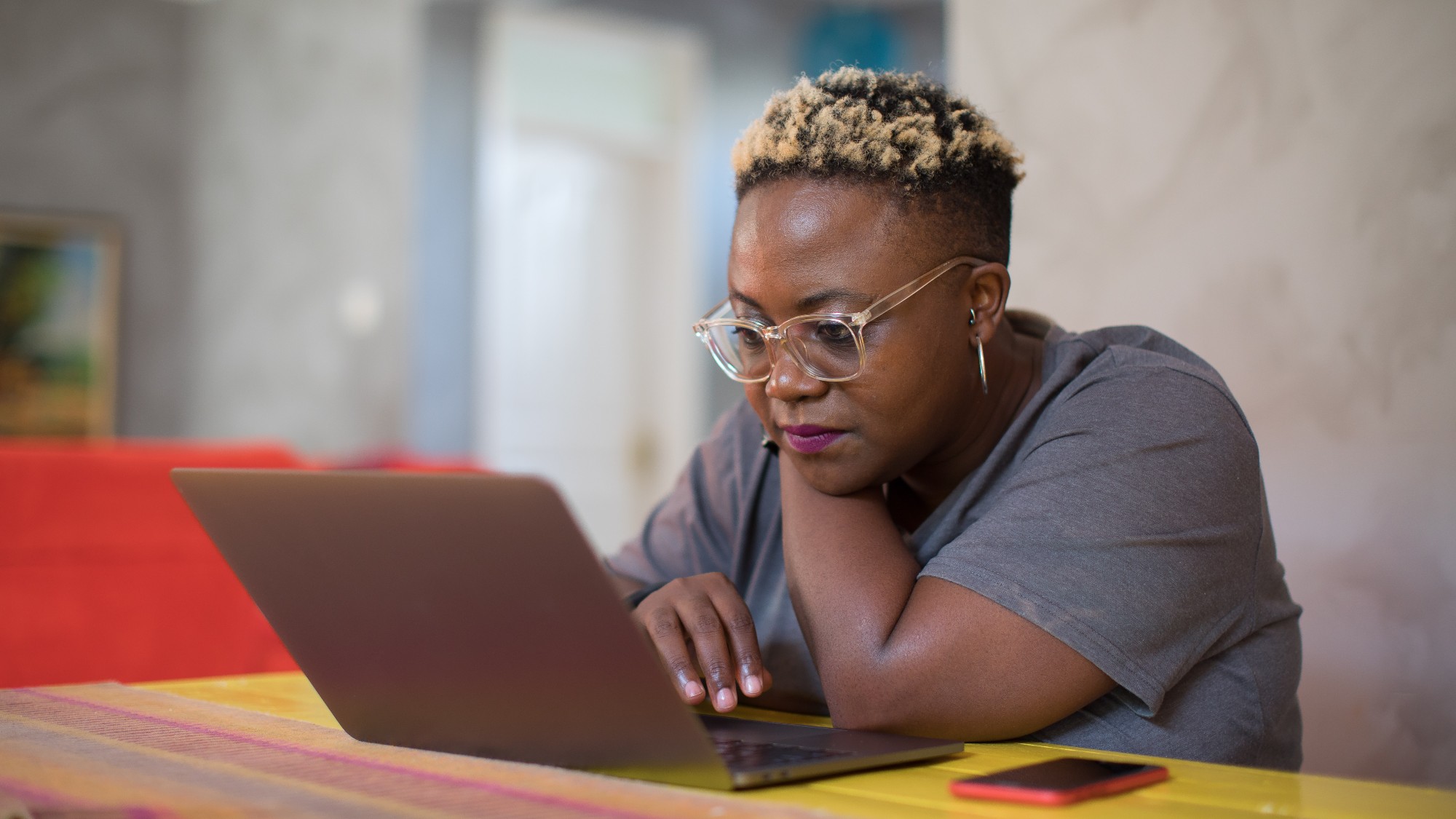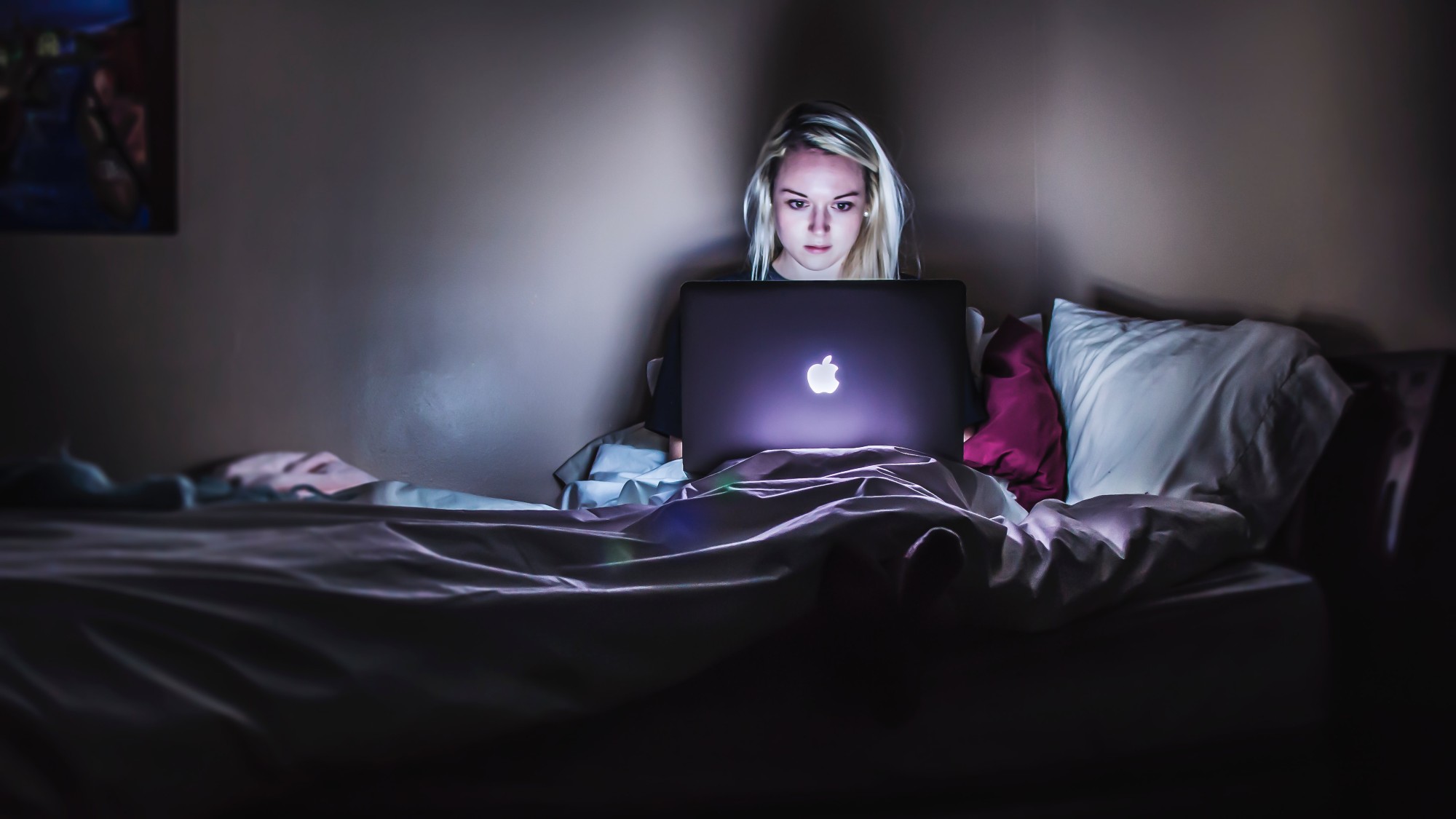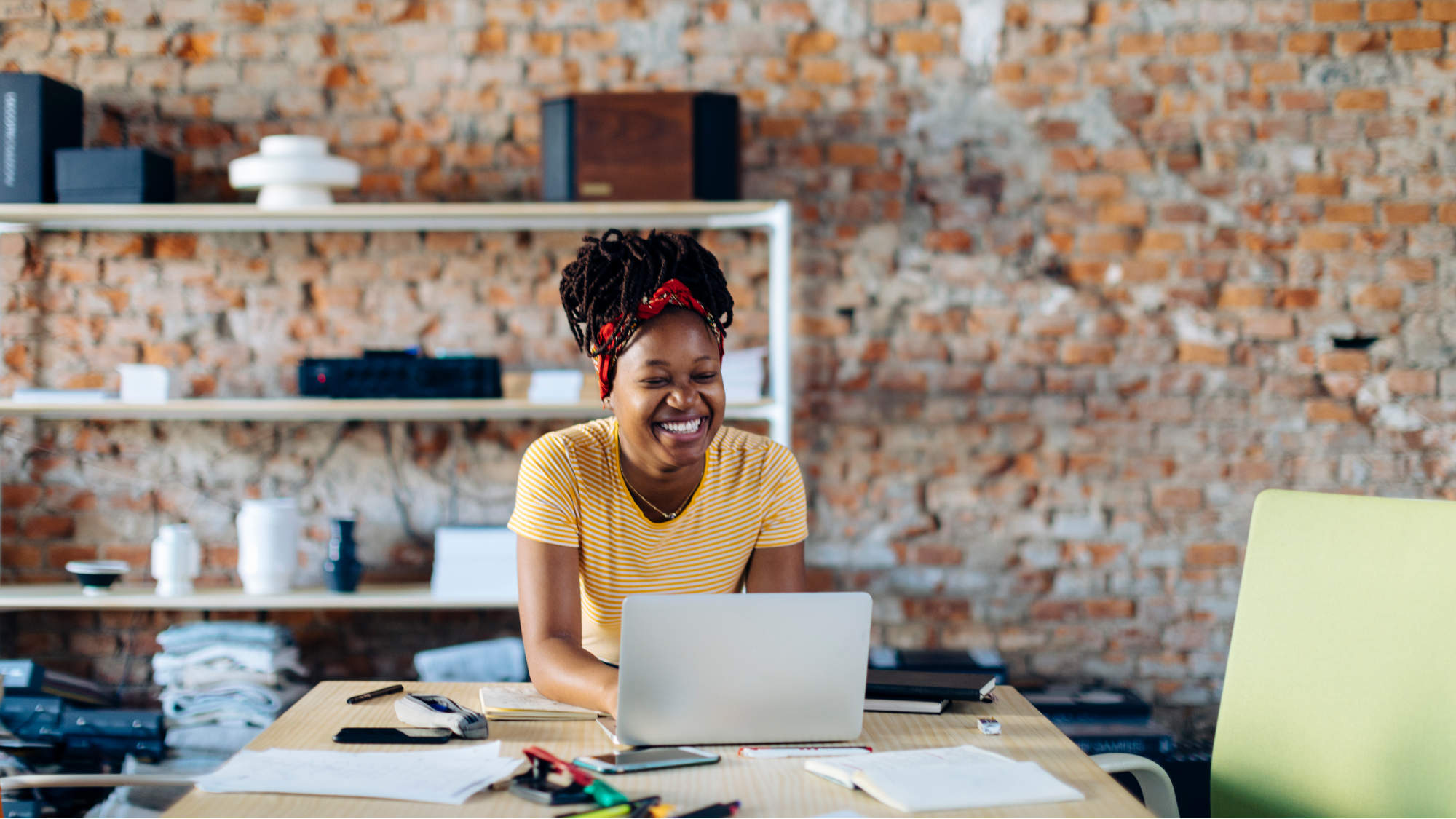How to overhaul your toxic relationship with your laptop, according to a psychotherapist
Is life lived entirely online ruining your motivation? Here's how to repair your toxic relationship with tech


Is life lived entirely online ruining your motivation? Here's how to repair your toxic relationship with tech
Over the past year, our relationships with technology have changed seismically. Where we once likely had a work computer separate to our personal one, and at least part of our working day was spent away from a screen, our entire professional and personal lives are now lived through a laptop. From morning workouts to Friday night Zoom catch-ups, there's no getting away from a screen in 2021 . And apparently, it's draining our digital health.
According to research released by Microsoft Windows at the end of last year, almost a third of the UK population admitted feeling less than great about their digital health. This is hardly surprising, given that the research also found that a quarter of Brits said their working days were longer last year, 1 in 5 said work and play had blurred into one, and that almost a quarter of us fessed up to checking our devices in the middle of the night. (*Turns off weekly screen time notification.*)
So how can we take care of our mental wellbeing while still spending the majority of our time online? We turned to psychotherapist and author Zoe Aston (@yourmentalhealthworkout) for some practical advice on setting digital boundaries, managing distraction and taking care of your self-esteem.
What is digital health?
"The definition of digital health that I use is having a balanced and effective state of wellbeing in relationship to technology," says Zoe. "When I think about digital health, I'm trying to think about it in the same way that I would think about physical or mental health. Digital health deserves the same kind of attention.
"We were so used to our routines – our commutes and the containment of the office and the people there, and then coming home at the end of the day – and all that was just taken from us overnight." But, says Zoe, there are ways of recreating these boundaries in our digital day-to-day.
Five ways of improving your relationship with tech
Technology has been a life raft for so many during the pandemic. But with life now lived almost entirely through our screens – from work, to socialising, to repeated binges of Bling Empire – digital burnout is at an all-time high. Here are some helpful ways of avoiding it.
Celebrity news, beauty, fashion advice, and fascinating features, delivered straight to your inbox!
Separate your professional space from your personal space (even if they're in the same room)
"Create specific spaces in your home where you work, where you rest, where you play and where you eat," says Zoe. "For some people, this all has to happen in the same room. But moving around different corners of that room is part of retraining the mind to have the correct psychological cues to know what it is doing." So, if you're working in your living room, try to avoid sinking into the sofa. If you're working from your bedroom, it's probably best to avoid logging on from your bed advises Zoe.
Accept that you'll never be fully offline
"I would suggest working on a sliding scale, rather than choosing to be fully on or offline," she says. "Rather than thinking you're completely connected or completely unconnected, try to find what actually works for you. With one being completely offline and ten being completely on, I'd suggest working anywhere between three and eight – you don't have to be bang in the middle all the time. Somedays you'll have more energy than others.
We've been taught for a long time to listen to our bodies when it comes to food, exercise and water, and we're all relatively good at finding a balance. But we just haven't had concept or the resources to know how to find that in our digital lives."

...But implement digital boundaries
That said, it's still important to work out your online boundaries. And according to Zoe, setting said boundaries is both about what you do with your tech, and how you respond to it. "It's very well saying, 'I'm not going to be on my emails after six o'clock,' but if you've got huge anxiety about not being able to check your emails after that time, then it's not actually a healthy thing to be doing. So it's about understanding what your own personal boundaries, reactions, feelings and experiences of your technology are. Everyone's boundaries are going to be slightly different – there's no cookie cutter." Here here.
Use your tech creatively
According to Microsoft's research, over 40% of the population say that they discovered a new interest, skill, passion or hobby in 2020 with the help of technology – with Gen Z (unsurprisingly) leading the way. A further 60% said that exploring a creative side to themselves helps to improve their overall health and wellbeing.
"One of the things that has contributed to [working from home] burnout is, I think, the lack of motivation and inspiration our brains need. We're hardwired to be inspired, and there's been very little of it this year. There's been no community and there's been no inspiration," says Zoe. "So it's all about using some of those digital tools and resources to access the healthy part of technology, and avoid burning out in all areas."

Check in with your self-esteem
Ever wondered why you're working late to finish something that could so easily be finished tomorrow? "One of the things that happened when people started working from home, or people who had lost their jobs started doing their own thing, is that we lost that opportunity to bounce off other people and feel good enough about ourselves," says Zoe.
"And off the back of that, people started to feel guilty and worry about whether they were doing enough, or whether they were working hard enough. But when it gets down to the nuts and bolts of it, you have to be looking after your self-esteem. It's all very well working hard and setting boundaries and having to-do lists, but ultimately, doing good things for yourself helps you to feel good enough about yourself. So the best advice I can offer is to focus on your self-esteem."
Kate McCusker is a freelance writer at Marie Claire UK, having joined the team in 2019. She studied fashion journalism at Central Saint Martins, and her byline has also appeared in Dezeen, British Vogue, The Times and woman&home. In no particular order, her big loves are: design, good fiction, bad reality shows and the risible interiors of celebrity houses.
